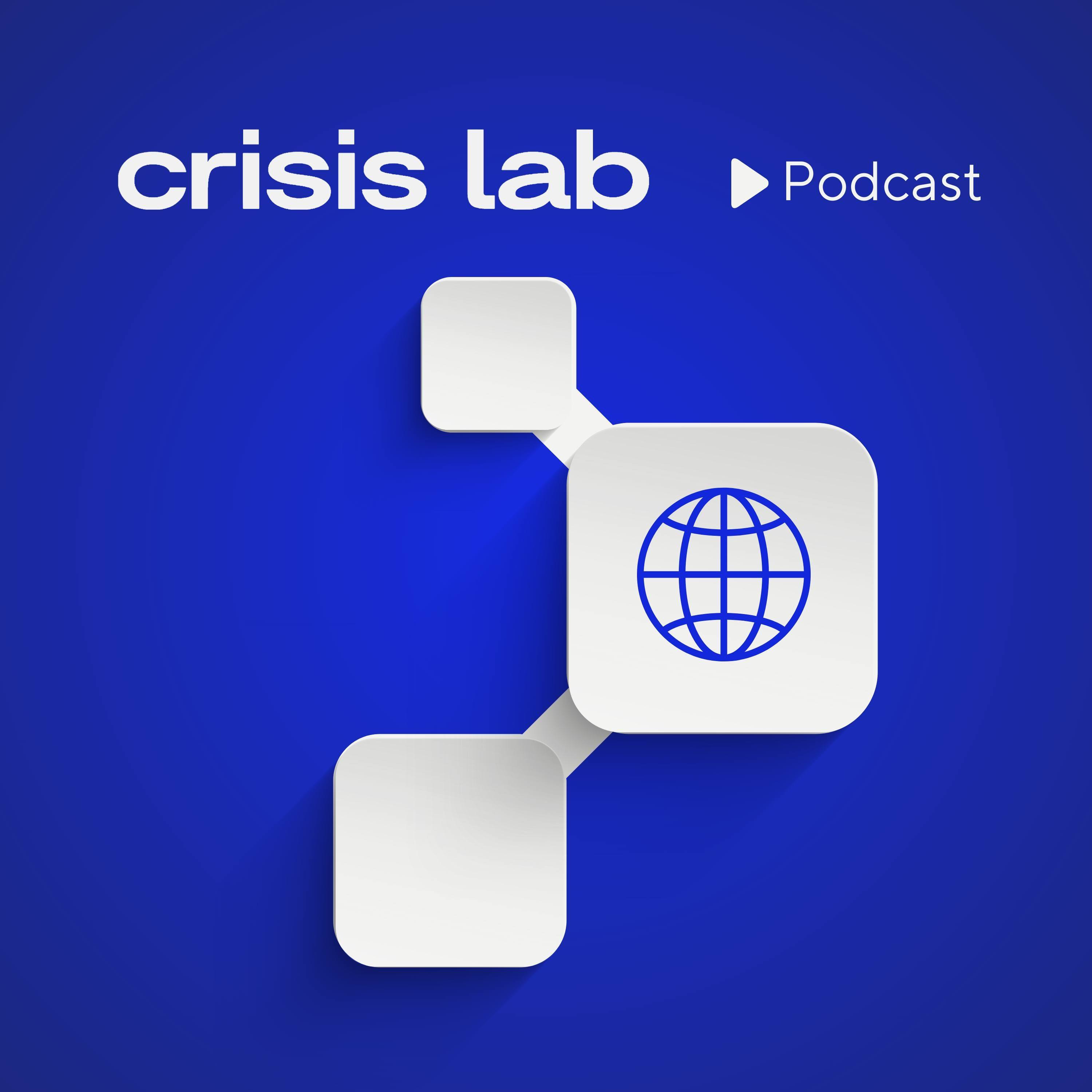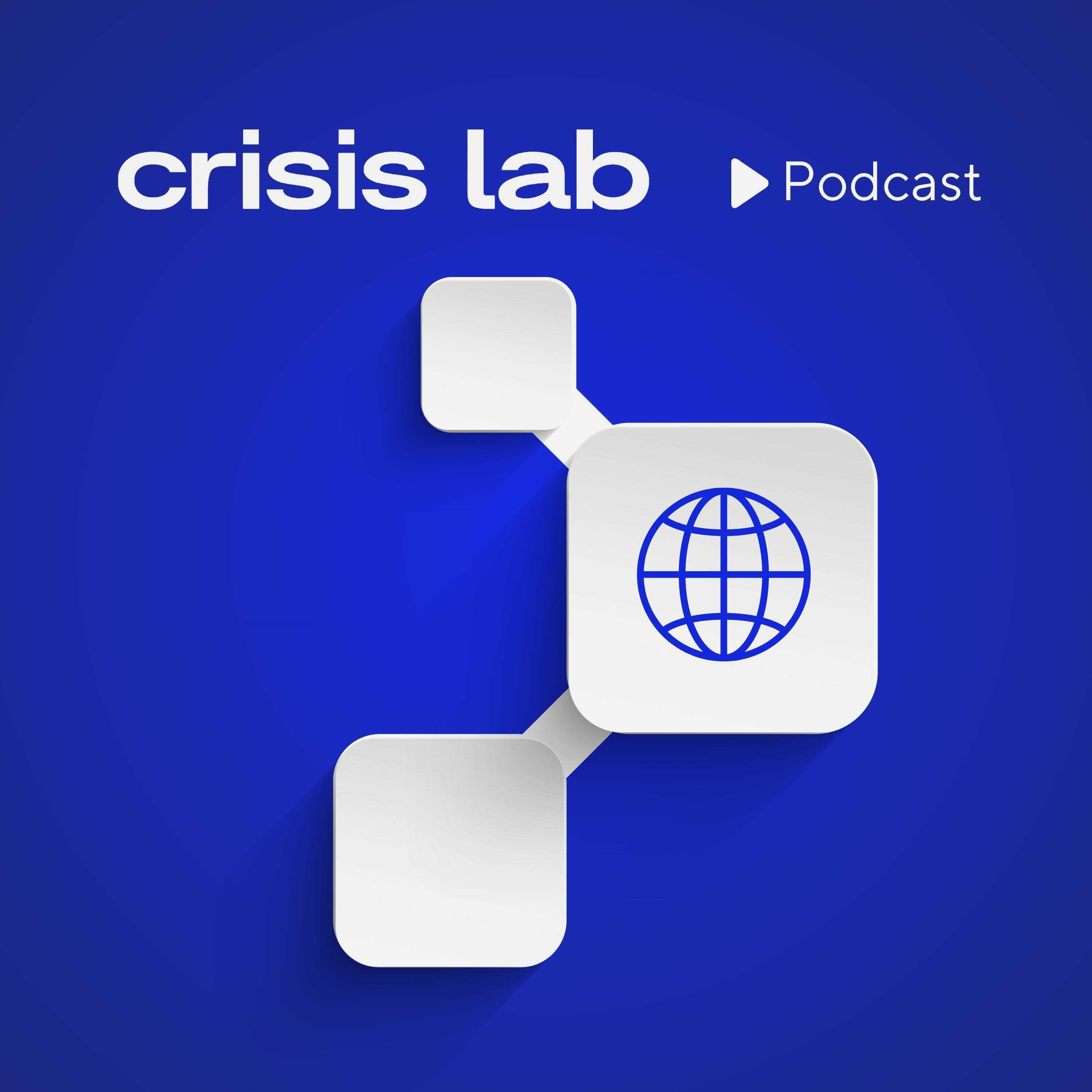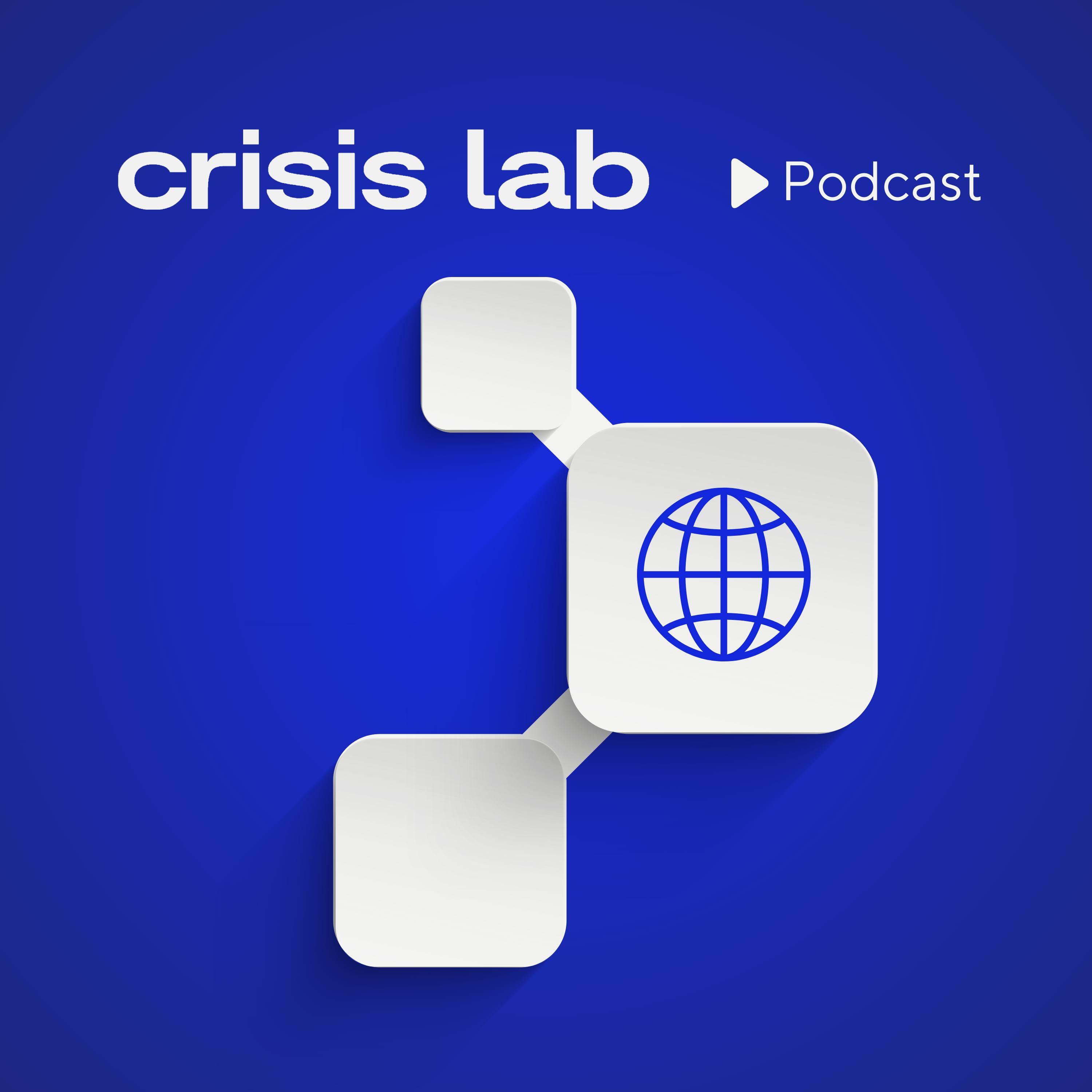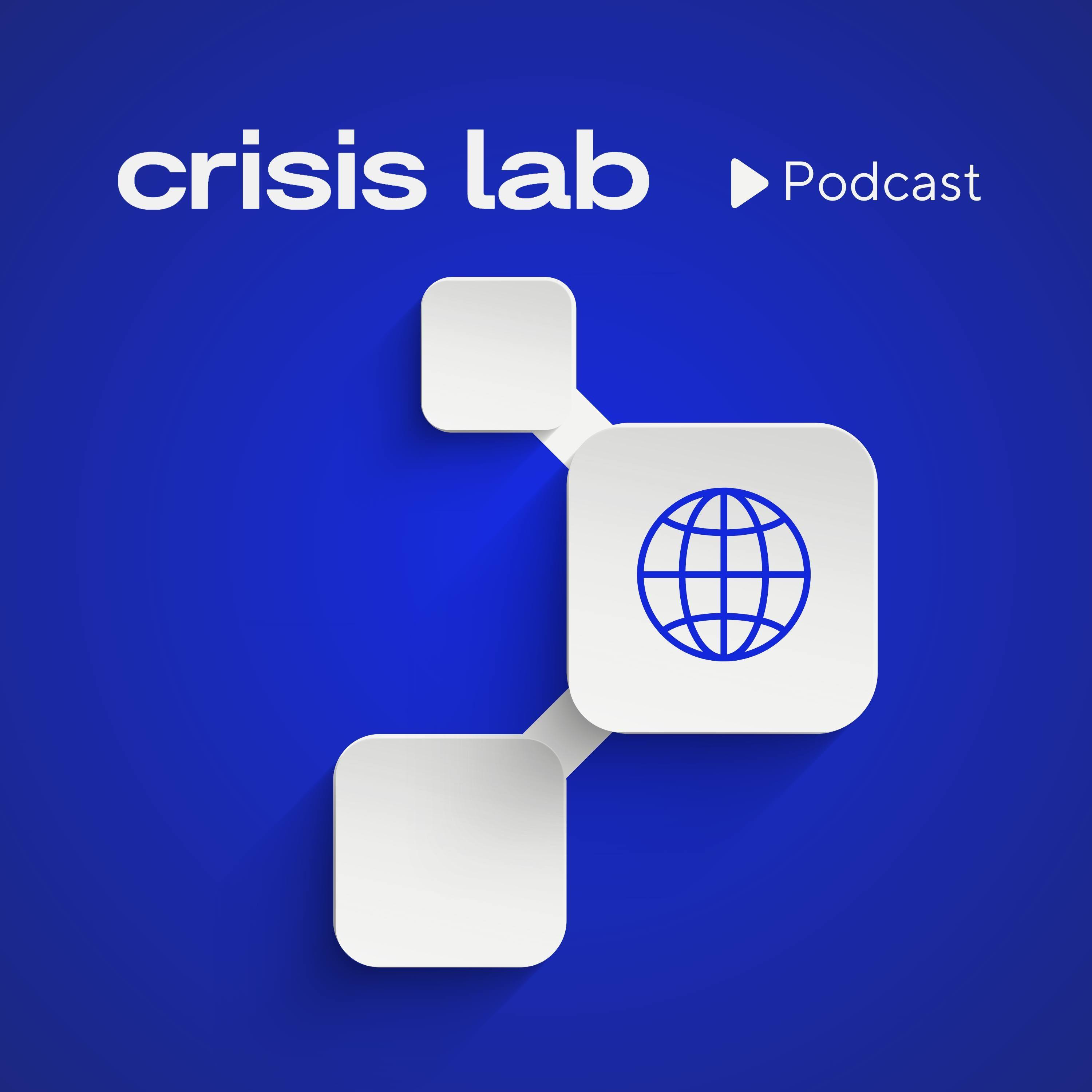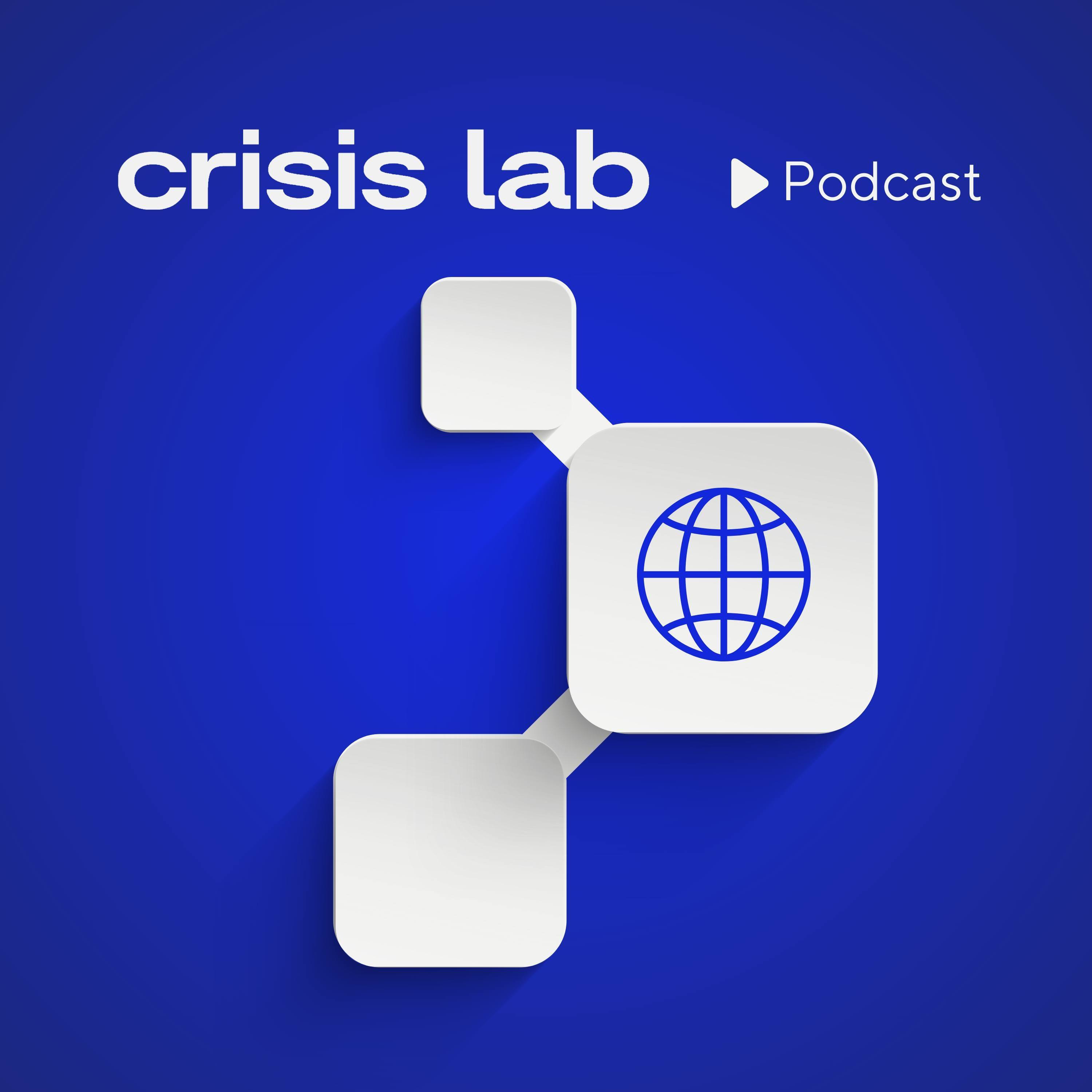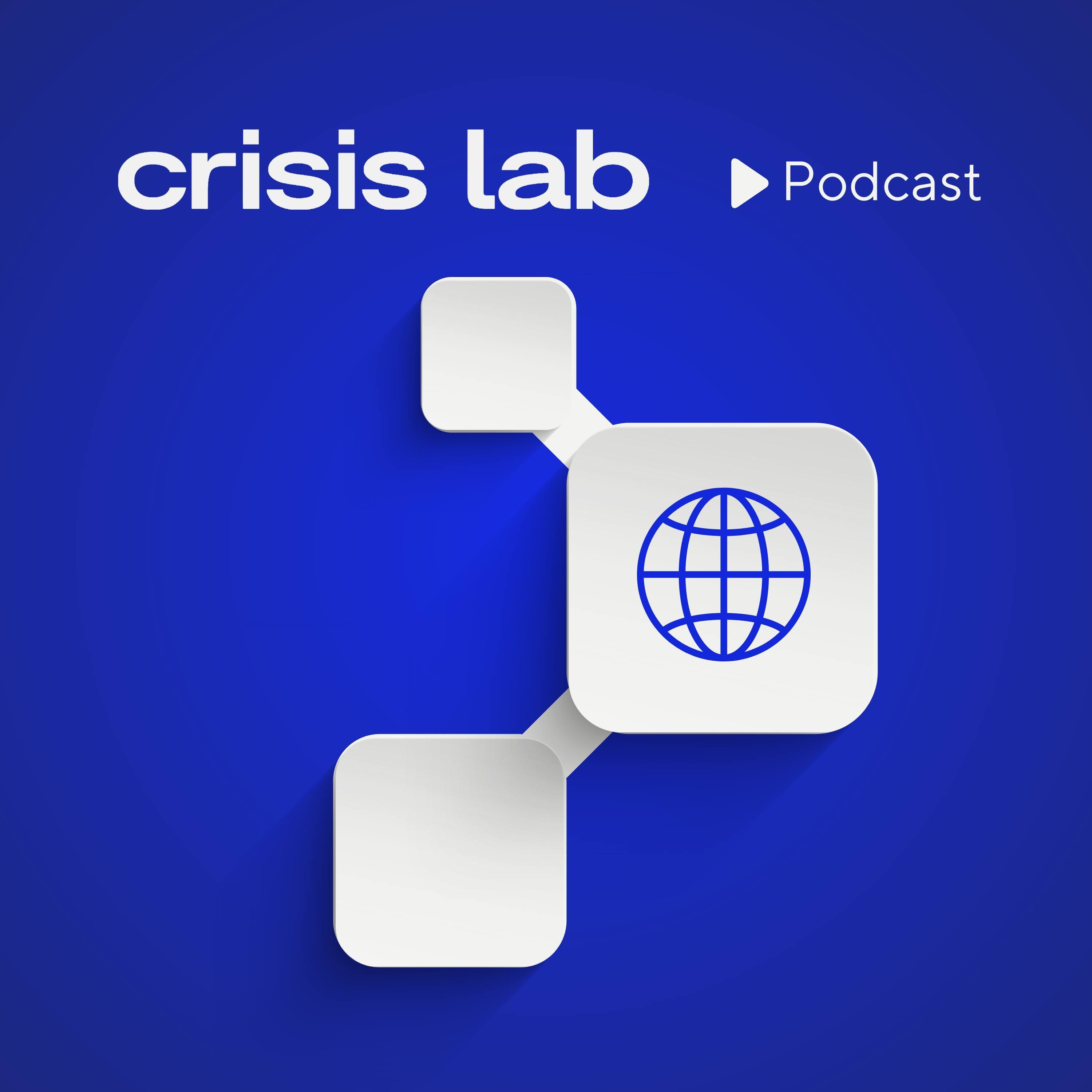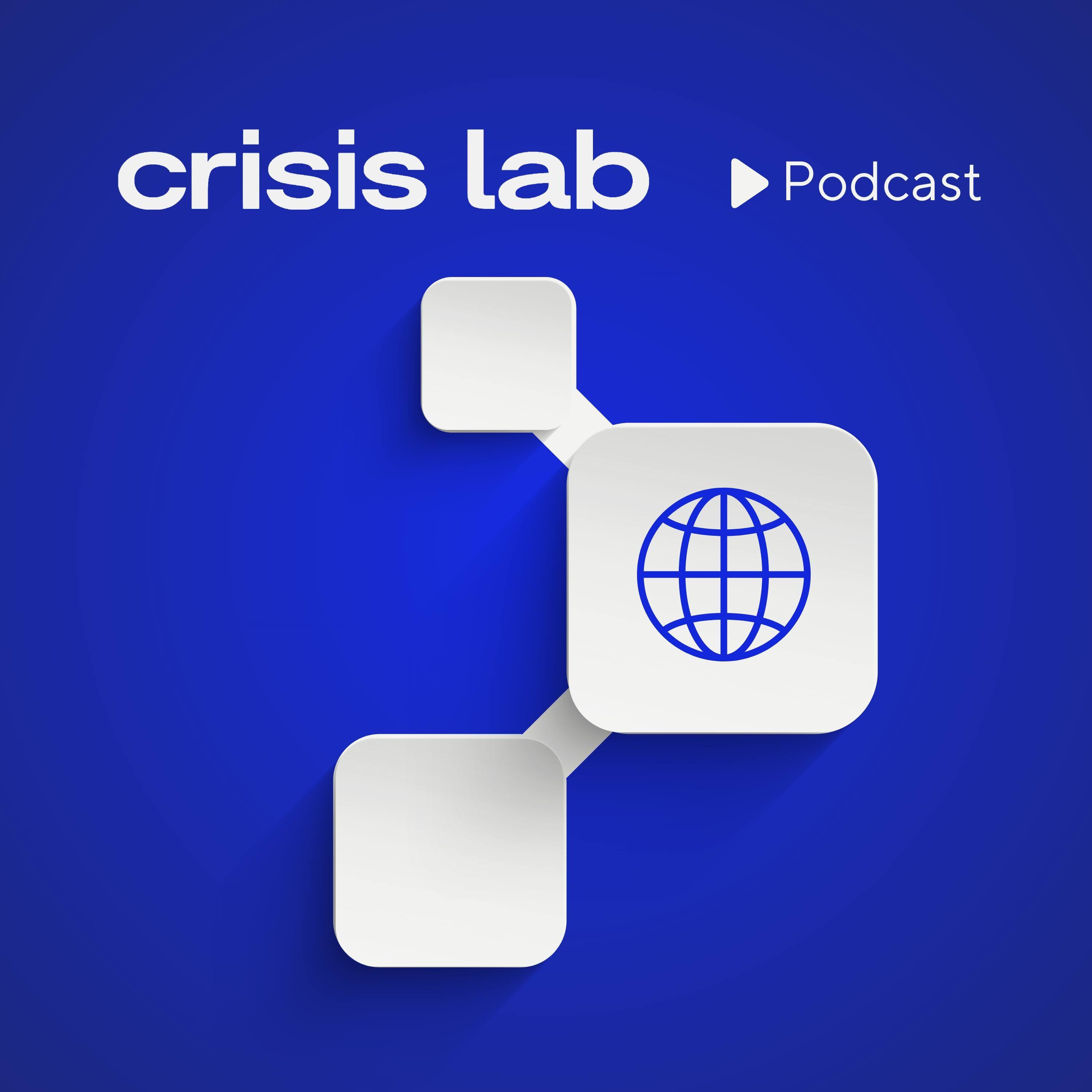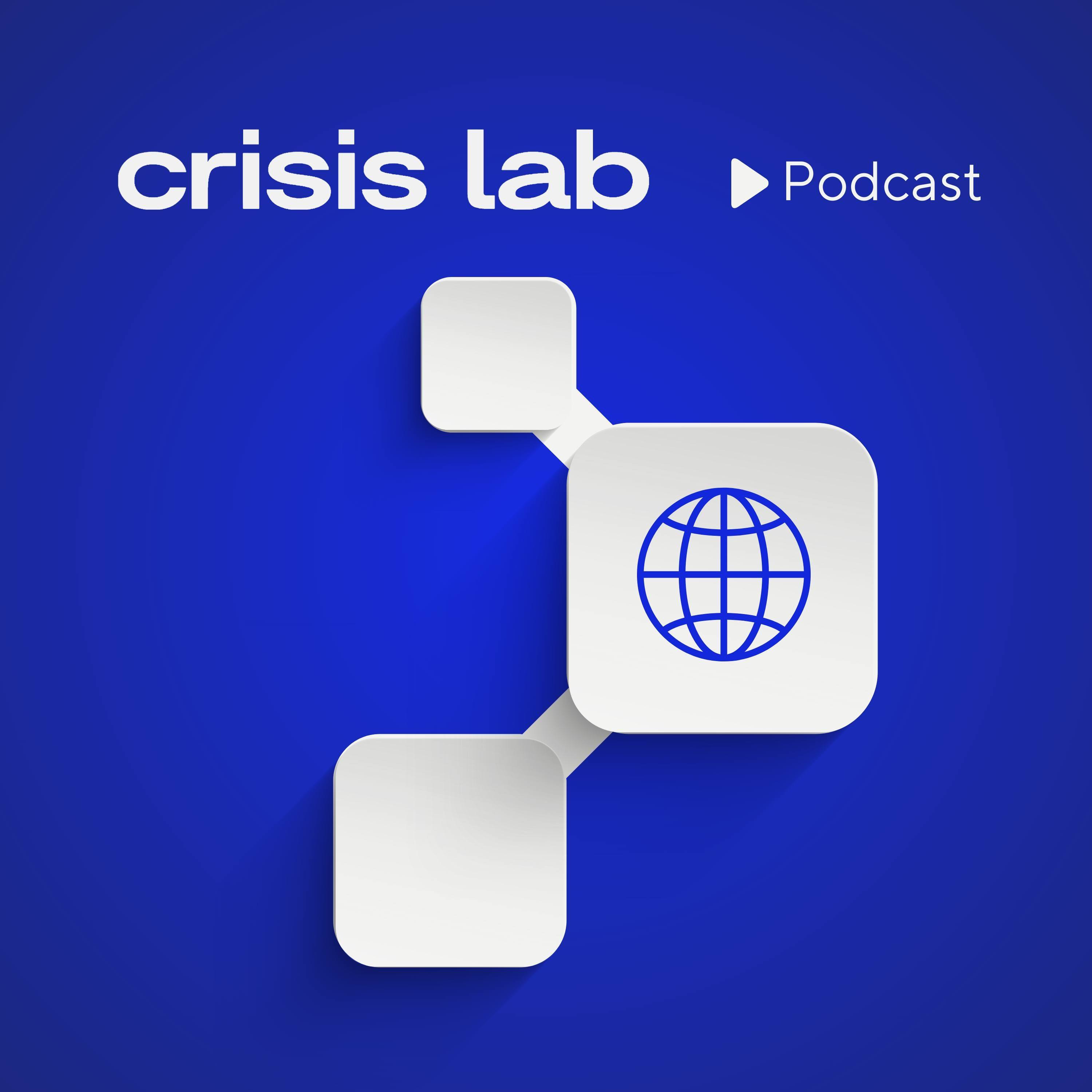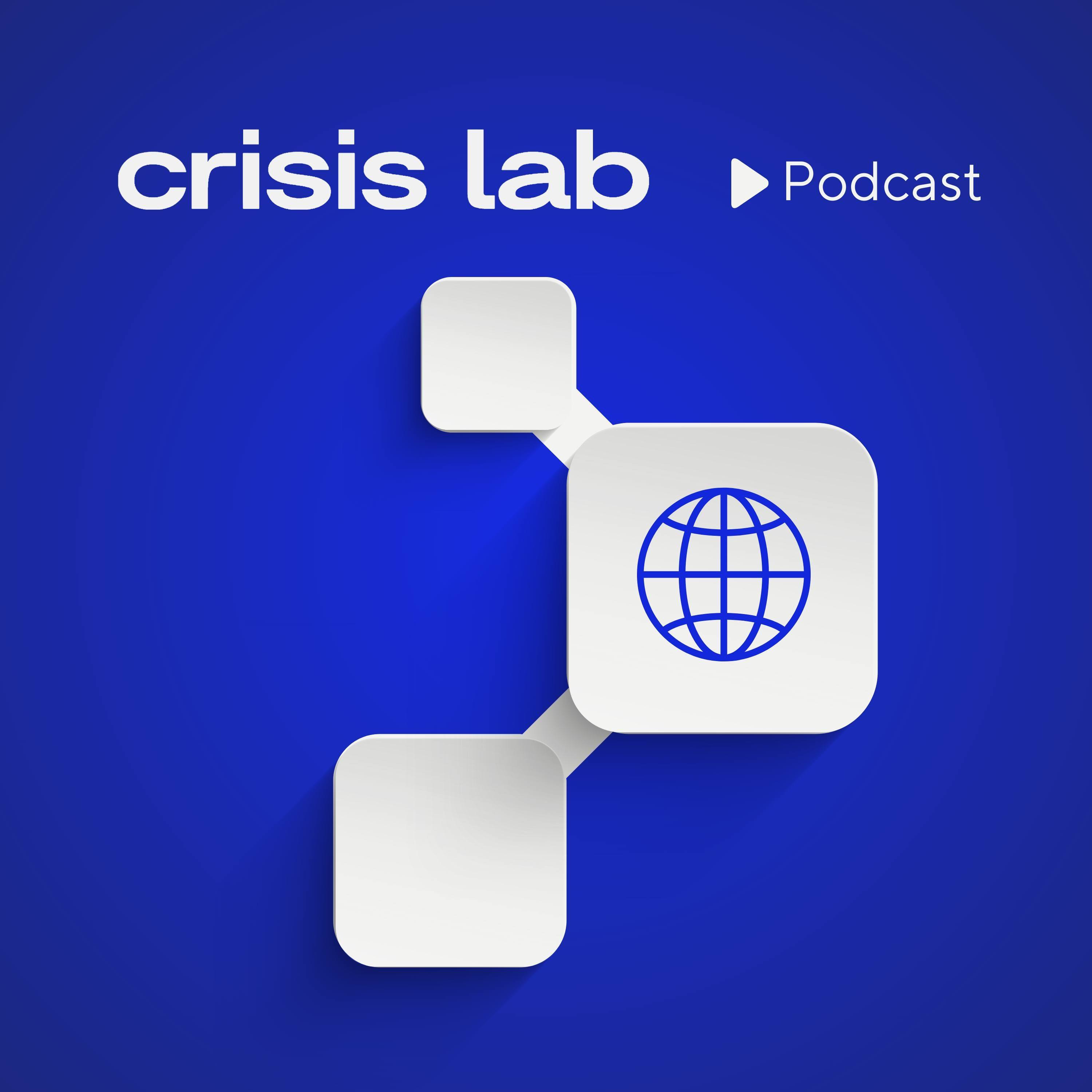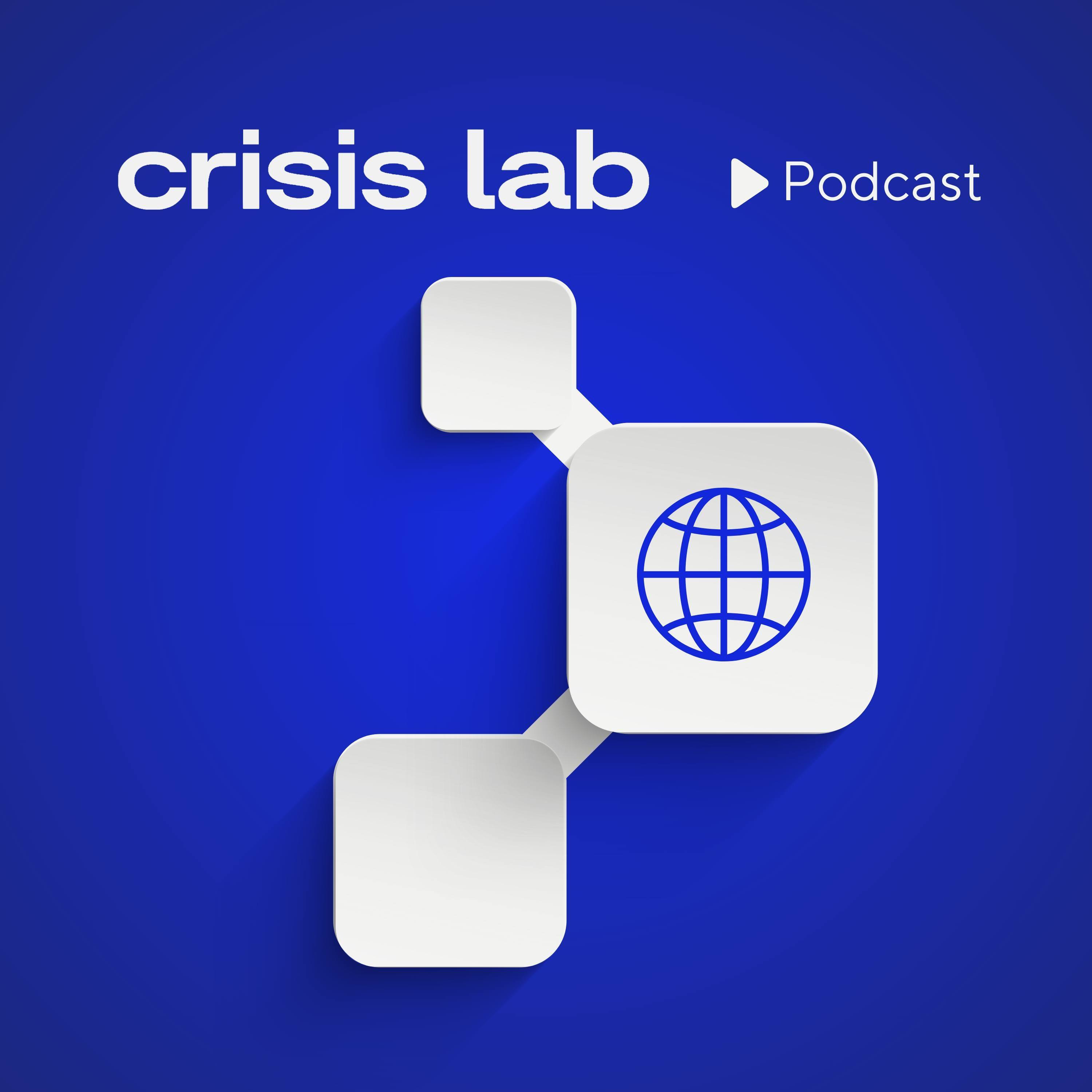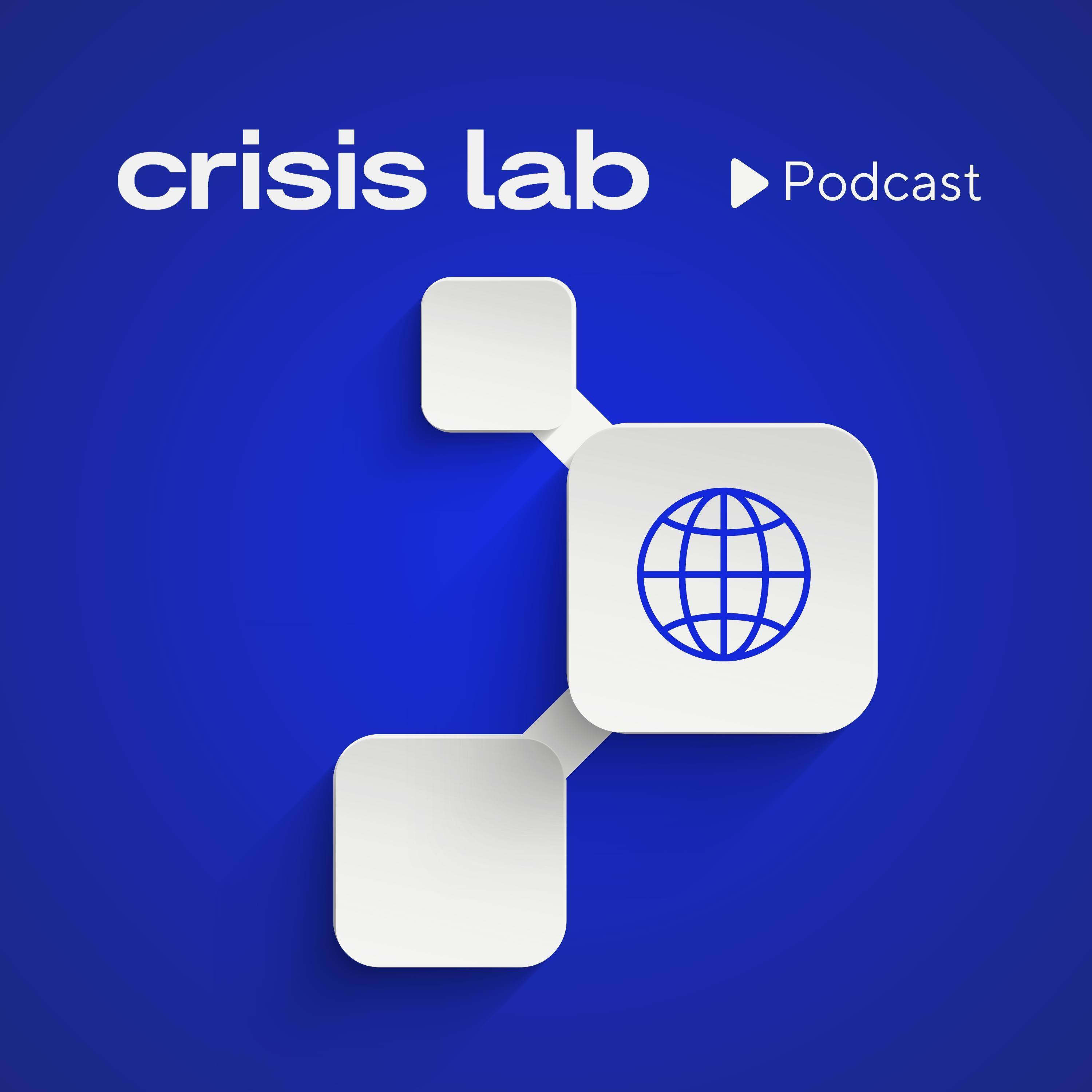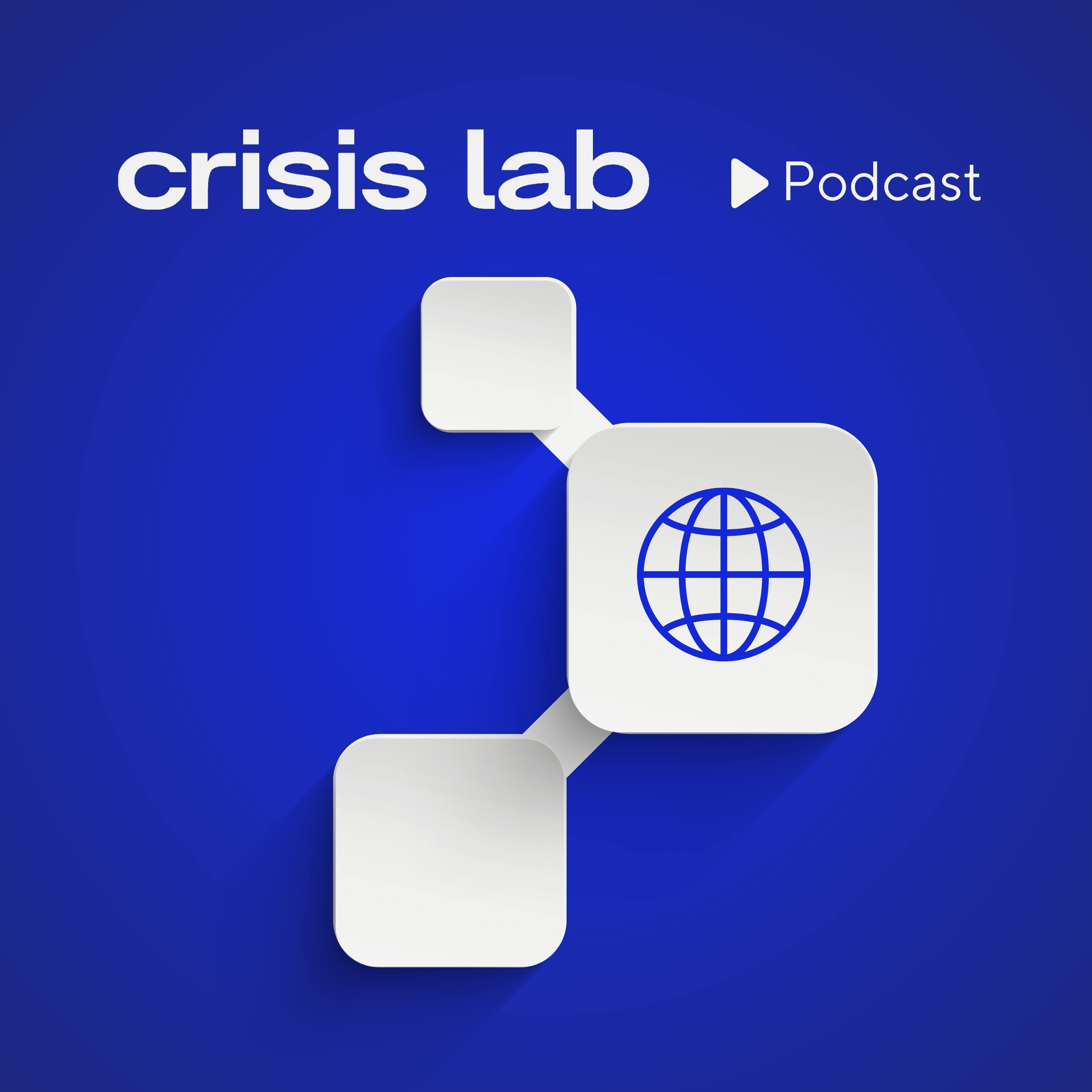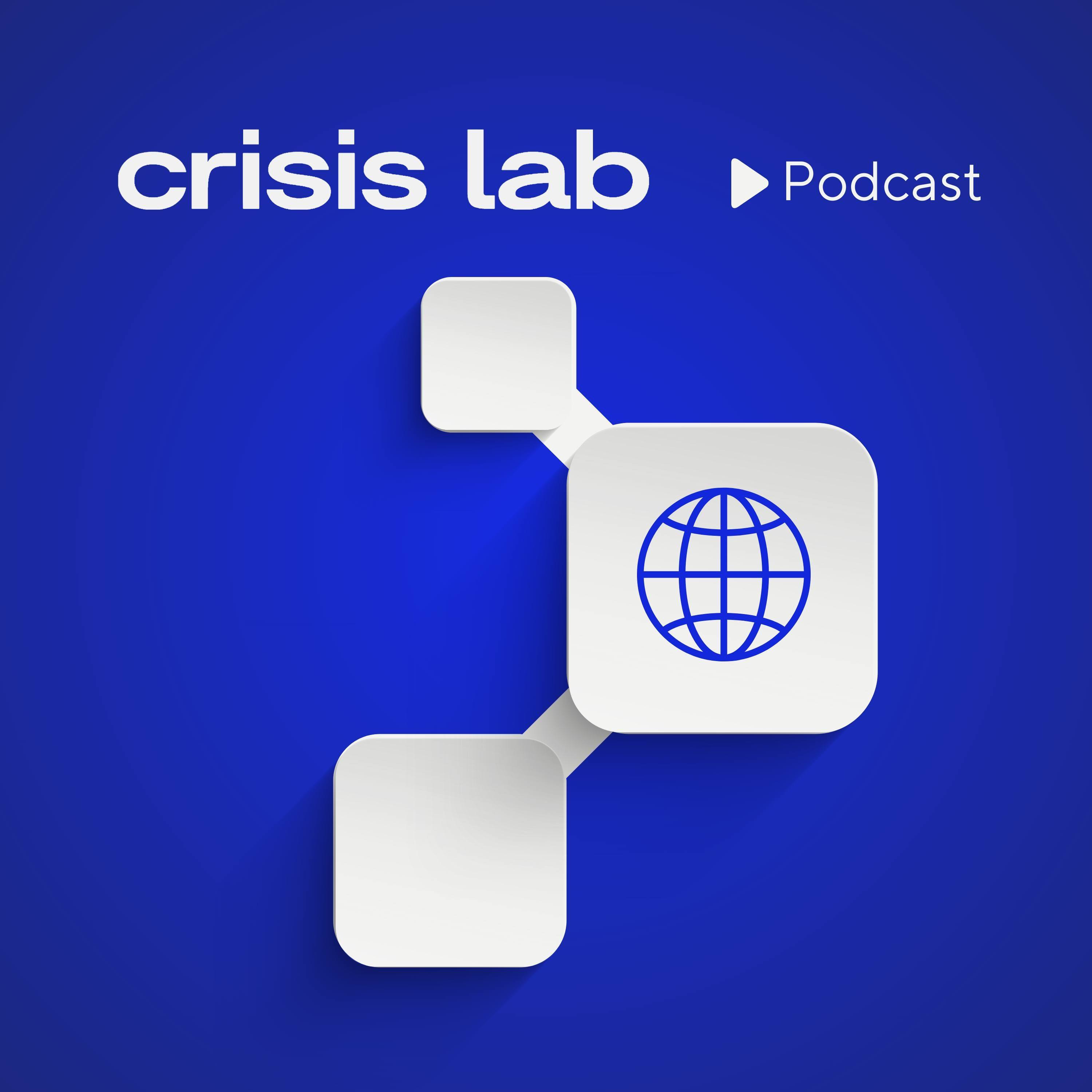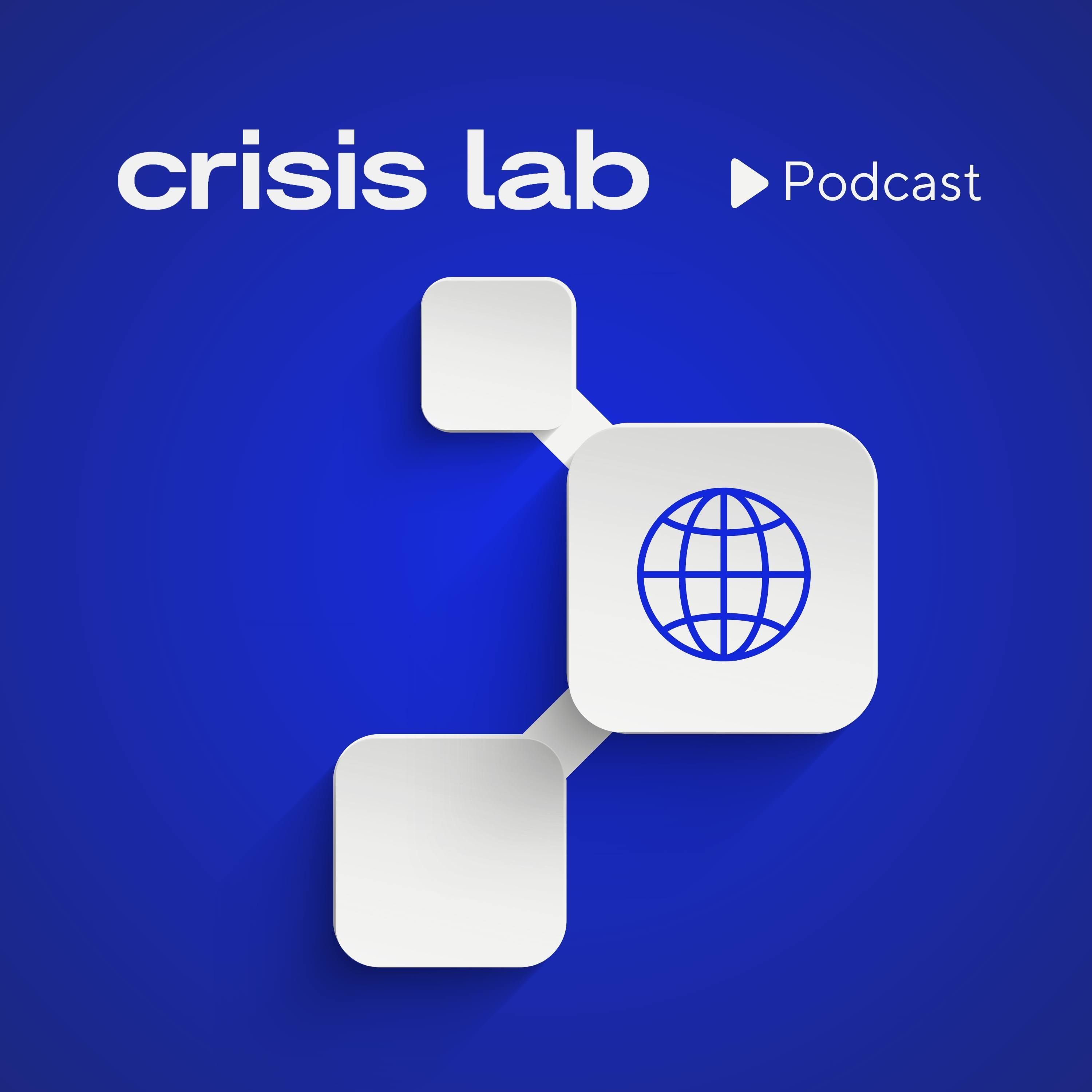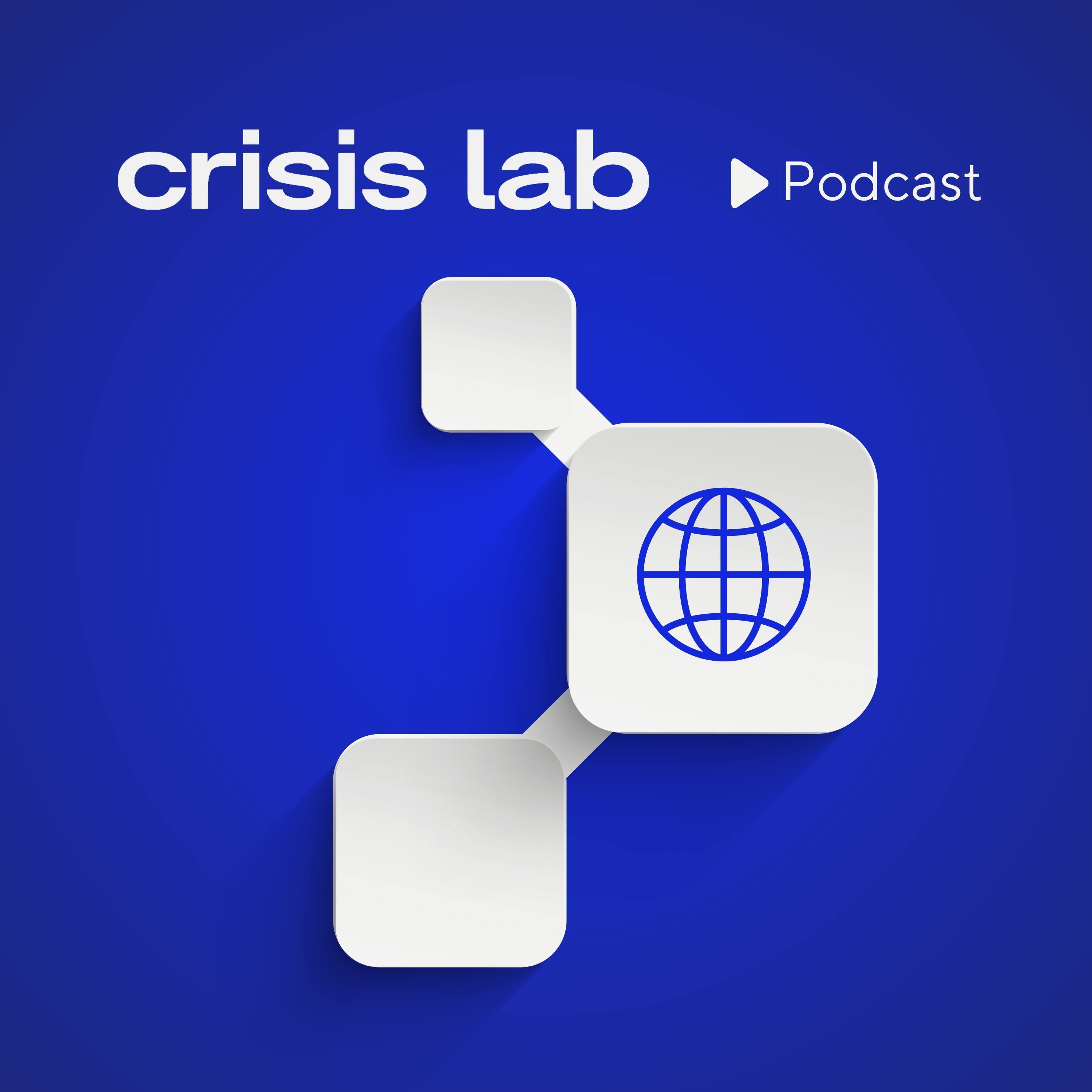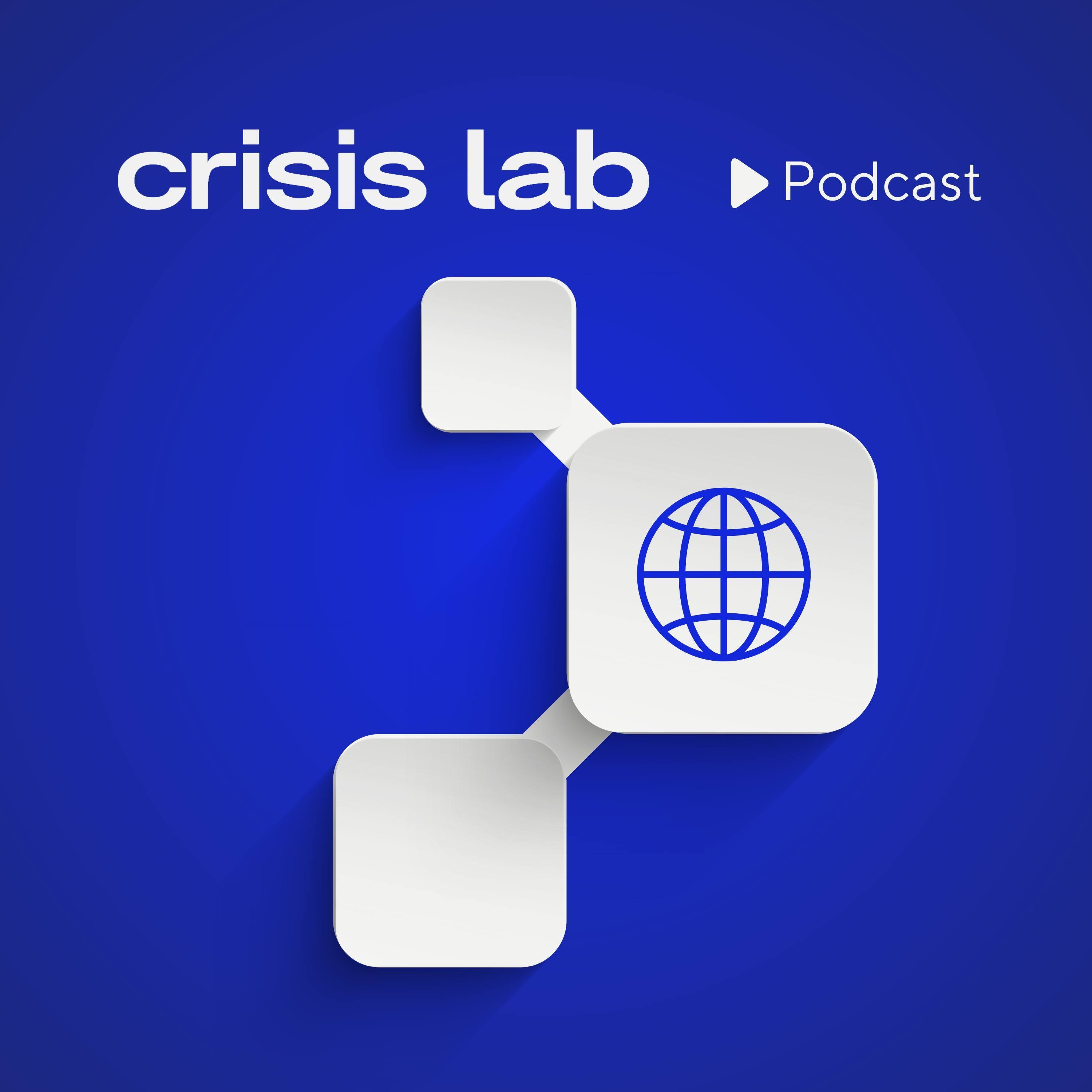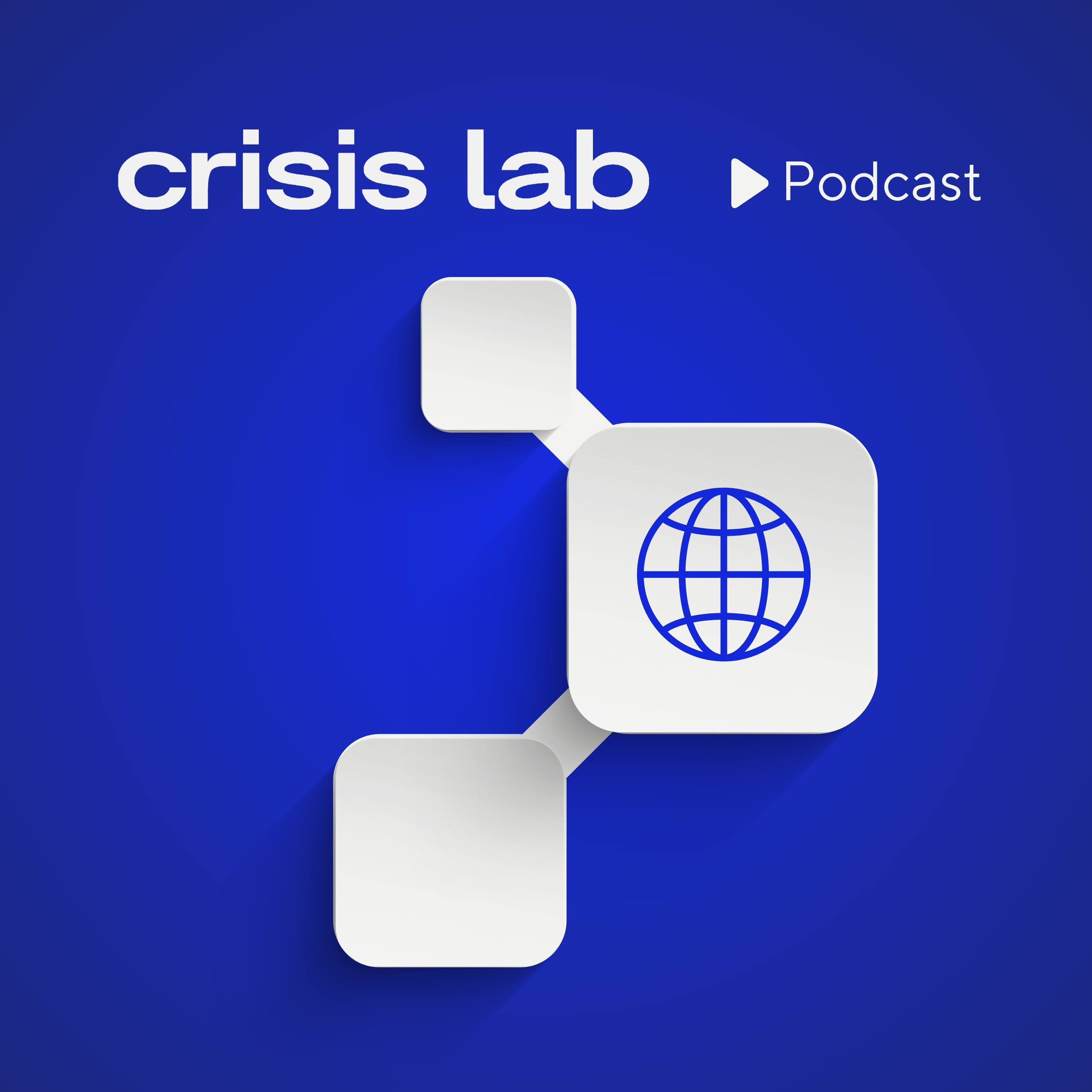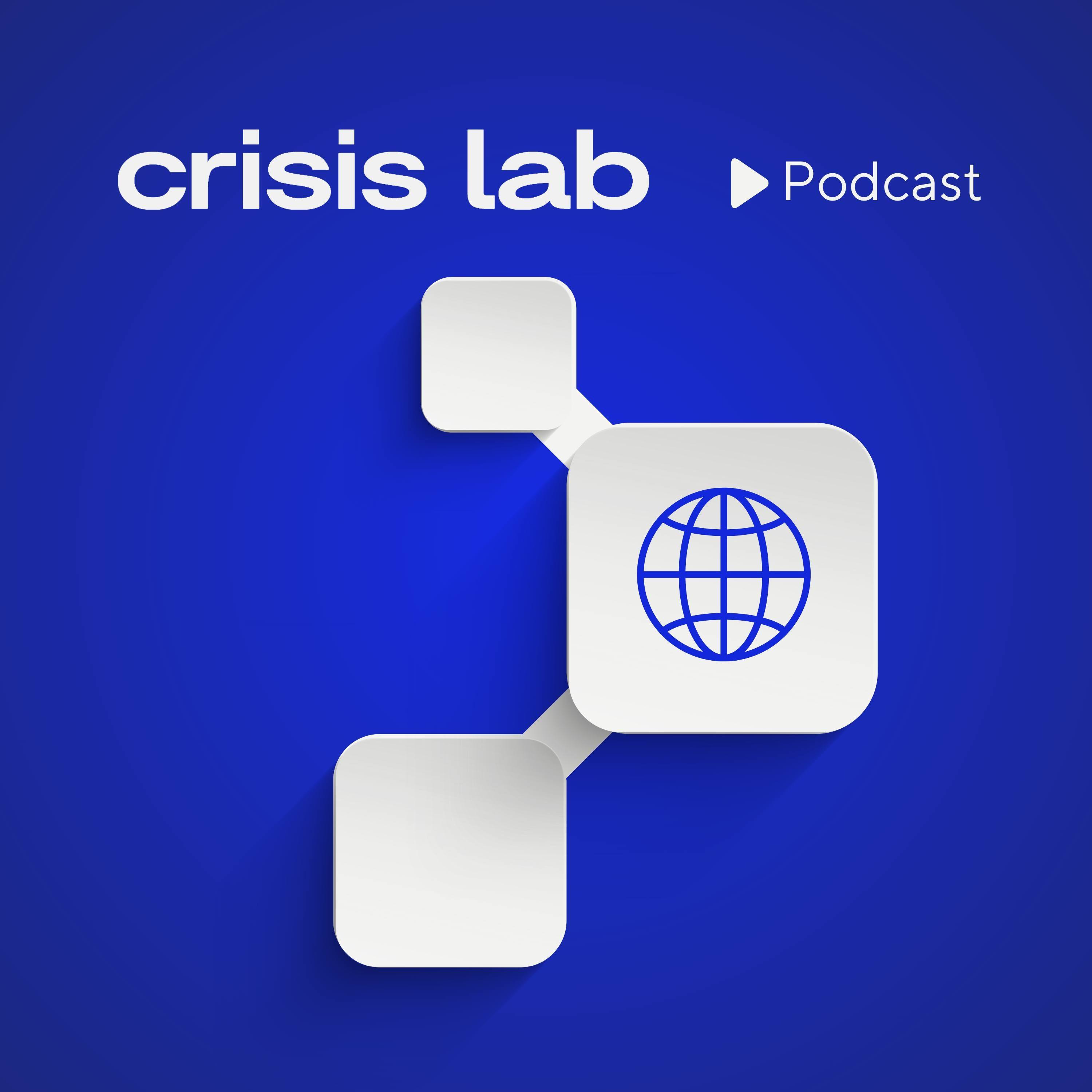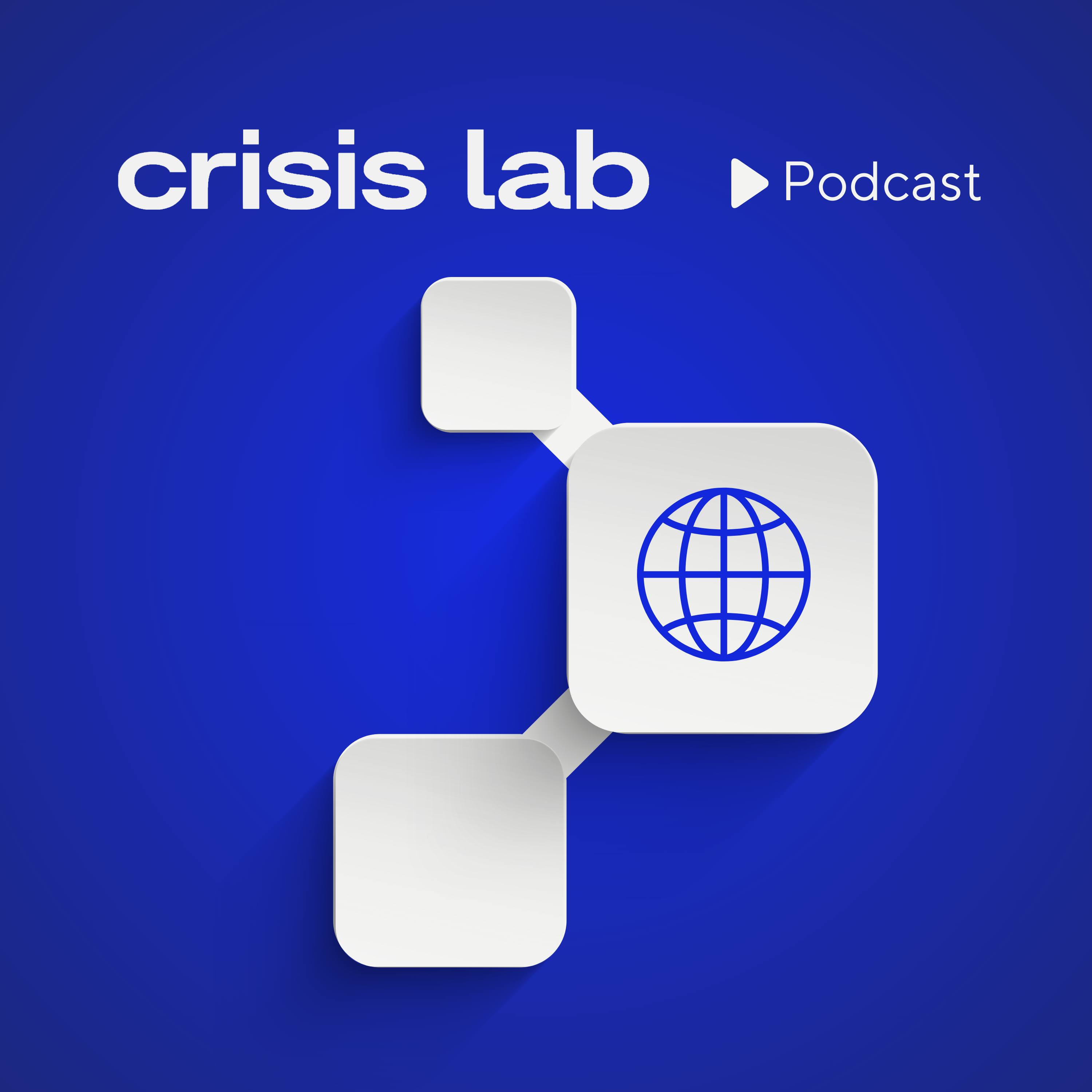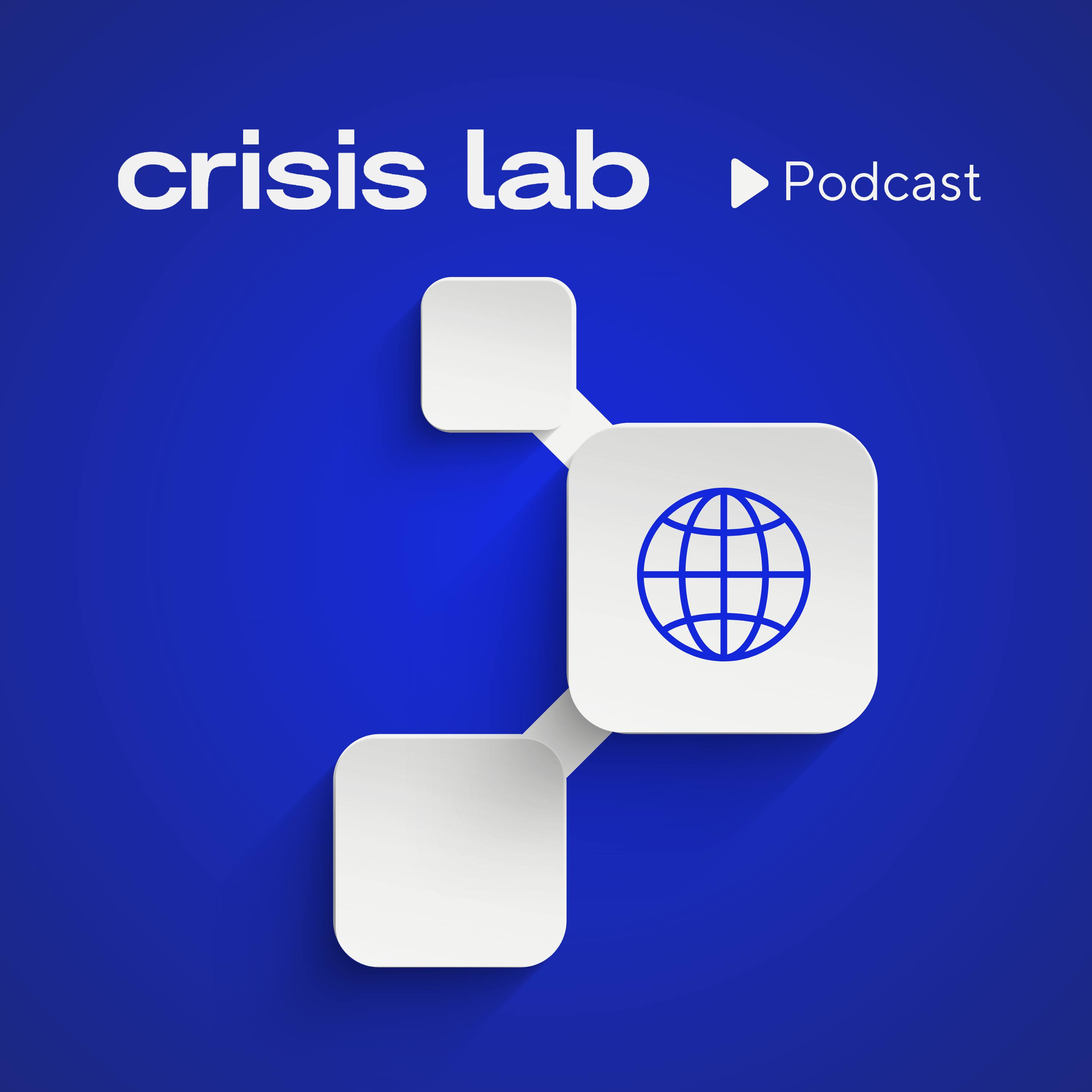Discover Crisis Lab
Crisis Lab

67 Episodes
Reverse
In this special year-end episode of the Crisis Lab Podcast, host Kyle King sits down with a panel of industry leaders: Todd De Voe, Matt Green, Anastasia Maynich, Laura James, and Ralph Bloemers. They dissect the chaotic landscape of 2025 and the evolving role of the emergency manager.
What it reveals: the dangerous lag between the velocity of modern crises and our traditional response systems. It also exposes the "capacity illusion" which is the belief that government agencies alone can handle the scale of today's disasters.
Between the LA wildfires and the cascading infrastructure failures of 2025, the profession learned a hard lesson. Operational confidence can no longer mask the fragility of our communities.
The panel tracks how "governance from 30,000 feet" often disconnects resources from the people who need them most. This creates a dangerous gap where policy meets reality.
This conversation offers not a celebration of resilience, but a call to action. It reflects on the need to embrace "complex adaptive systems" rather than rigid command structures.
It challenges the sector's hesitation to truly engage the public. It forces us to ask a hard question. Are we building systems that protect the status quo? Or are we ready to let communities lead their own recovery?
Show Highlights
[03:06] Introducing the Panel of Experts
[07:02] The impact of speed and complexity in crisis response
[09:33] The reality of under-resourced local emergency managers
[29:37] Engaging community voices over official messaging
[39:25] Understanding Fire Risks
[40:02] The Role of Emergency Managers
[41:12] How top-down governance fails neighborhood reality
[42:43] Complex Adaptive Systems
[44:35] Emergency Management Challenges
[47:52] Learning from indigenous wisdom and fire stewardship
[53:25] Why every home needs its own emergency manager
[54:37] Recovery and Long-Term Challenges
[01:03:17] Predictions for 2026: The context-switching trap
[01:17:46] Closing Thoughts and Resources
Connect with the Guests
Anastasia Maynich
LinkedIn: Anastasia Maynich MA, MS
YouTube: XanamayX
Website: xanamayx.com
Podcast: Beyond the SOP
Matt Green
LinkedIn: Matt Green
Newsletter: State of Disaster
Book Club: Disaster Discourse
Company: GEMS Ready
Todd De Voe
LinkedIn: Todd Thayer De Voe, MPA, CEM®
Substack: Todd T. De Voe
Newsletter: Emergency Management Network
Laura James
LinkedIn: Laura James
Podcast: Resilient HERoes
Ralph Bloemers
LinkedIn: Ralph Bloemers
In this episode of the Crisis Lab Podcast, host Kyle King speaks with Tom Sivak, Chief Emergency Manager at Emergency Management One, about the fundamental shift in the crisis management profession from a knowledge economy to an allocation economy.
What it reveals: the unsustainable nature of manual information processing in an era of polycrisis and velocity.
With emergency management agencies facing chronic understaffing and budgets that demand "more with less," the traditional model of the "Rolodex leader" who holds the entire plan in their head is failing. Sivak argues that trying to manually process the astronomical amount of data in modern crises is no longer a badge of honor, it is a strategic vulnerability.
This conversation offers a pragmatic roadmap for operationalizing AI not as a tech trend, but as a survival mechanism. It reflects what modern leadership demands: moving from being the "writer" of every brief to the "editor" of intelligence, building "blue sky" muscle memory so tools work when the pressure mounts, and reclaiming the "gut intuition" that only a human can provide.
Show Highlights
[04:00] Why AI is the only scalable solution for the "do more with less" mandate
[06:00] The "Forethought" Principle: Why using AI only during disasters guarantees failure
[08:00] Parallels to 1994: How the industry feared the internet before it became essential
[13:00] The maturity model shift: Moving leaders from "writers" to "editors"
[17:00] Using efficiency to focus on community resilience and mental health
[21:00] The Human Lever: Why algorithms can process data but cannot replace gut intuition
[23:00] Why value now comes from directing resources, not retaining facts
[25:00] Validating the Emergency Manager's role as the original "Allocation" leader
In this episode of the Crisis Lab Podcast, host Kyle King sits down with Brenden Winder (Christchurch City Council). They dissect the fourteen year recovery journey following the Christchurch earthquakes.
What it reveals: the dangerous illusion of short term success in emergency management. It also exposes the silent erosion of institutional memory.
Between the 2010 earthquake (where systems appeared to hold) and the devastating 2011 event that claimed 185 lives, Christchurch learned a hard lesson. Operational confidence can mask systemic fragility.
Winder tracks how the rush to add governance layers actually reduced transparency. This created barriers between resources and the community they were meant to serve.
This retrospective offers not a celebration of resilience, but a warning. It reflects on the "asymmetry of recovery." Infrastructure is rebuilt while deep pockets of community trauma remain.
It challenges the sector's reliance on international templates. It forces us to ask a hard question. Are we building systems that actually fit the local 80%? Or are we just applying the international 20%?
Show Highlights
[00:00] The limits of international frameworks in the face of neighborhood reality
[03:00] The dangerous gap between perceived success (2010) and catastrophic reality (2011)
[06:00] When adding more governance structure reduces community transparency
[08:00] How election cycles and staff turnover erase the "intellectual property" of disaster response
[17:00] Why "returning to normal" is a myth when infrastructure rebounds faster than people
[21:00] Why international best practice is only a fraction of the solution
[24:00] Contrasting the US emergency management "struggle session" with New Zealand's depoliticized approach
In this episode of the Crisis Lab Podcast, host Kyle King examines Sweden's transformation from traditional emergency management to integrated security governance.
What it reveals: the gray zone reality facing emergency management professionals across Europe.
Throughout 2025, coordinated Russian operations across Baltic civilian infrastructure exposed fundamental flaws in crisis management systems built for discrete events.
Sweden's response offers not a blueprint to copy, but a mirror. It reflects what sustained multi-domain pressure demands: rethinking where emergency management sits in governance, how capability distributes across society, and what "prepared" means when crises don't end.
Show Highlights
[0:40] Russia's systemic campaigns across European civilian infrastructure in 2025
[01:44] Gray zone operations overwhelm traditional emergency management coordination
[03:00] Denmark's reality check: Copenhagen Airport shutdowns connect to shadow fleets and cyber intrusions
[03:50] Sweden's systematic rebuild treats gray zone reality as permanent operating condition
[05:07] Total Defence integration model eliminates separation between military and civilian crisis management
[09:36] Why surge capacity models collapse under continuous multi-domain pressure
[12:00] The fundamental question: governance change or improved emergency response?
[13:00] Missing piece: institutional recognition that informal coordination networks are the foundation of evolution
Connect with Kyle King
LinkedIn
In this episode of the Crisis Lab Podcast, host Kyle King examines how gray zone operations are fundamentally reshaping civilian crisis management across Europe. Kyle walks through Russian drone incursions over Poland, GPS jamming affecting hundreds of thousands of flights, and shadow fleet operations cutting undersea cables to demonstrate why traditional emergency management frameworks can't handle sustained, multi-domain pressure designed to exhaust coordination capacity.
Through real-world examples like Poland's border closure disrupting €25 billion in trade and Denmark's coordination trap, the episode reveals how practitioners are already building informal networks out of necessity because official structures move too slowly. NATO members are invoking Article 4 consultations over civilian incidents. Emergency managers are operating at sustained alert levels for weeks without recovery phases.
Tune in to understand why the transformation from emergency management to security governance isn't optional anymore, and how Crisis Lab's Forum provides the strategic infrastructure for professionals navigating this shift in real time.
Show Highlights
[00:25] Defining the gray zone and why it matters for civilian crisis management
[01:30] September 2025 Russian drone incursions and NATO's first intercept over member territory
[02:15] GPS jamming surge: 700 incidents in 2025 vs 55 in all of 2023
[03:00] Why traditional emergency management assumptions no longer hold
[04:15] How gray zone operations target civilian coordination capacity, not military assets
[05:00] Poland's 12-day border closure and the €25 billion trade route disruption
[06:15] Cascading effects: pharmaceutical supply chains and continental public health coordination
[07:00] The coordination trap: when organizational charts become obstacles
[08:00] Sweden's bureaucratic response to shadow fleet operations
[09:00] What sustained operational capability actually requires
[10:15] Intelligence integration as a civilian function
[10:45] Training for multi-domain pressure and information fog
[11:15] How informal networks are holding when formal structures fail
[12:00] The Forum at Crisis Lab: strategic infrastructure for the security governance transformation
In this episode of the Crisis Lab Podcast, host Kyle King takes a hard look at the internal fractures forming within the emergency management community. Kyle reflects on how recent disasters and public criticism have brought long-standing issues to the surface. This episode challenges the profession to face uncomfortable truths about authority, messaging, and its evolving role in the face of growing demands.
With examples drawn from major events like Hurricanes Helene and Milton, and reactions from both public officials and emergency professionals, Kyle unpacks how misinformation, internal conflict, and a crisis of credibility are reshaping what it means to serve communities during emergencies. He explores how the field's reliance on heroic language has masked a quiet shift toward managing scarcity rather than delivering aid and why the time for honest self-examination is now.
Tune in to hear why emergency management stands at a crossroads and what it must do to rebuild public trust and professional unity in an age of constant crisis.
Show Highlights
[00:25] Why this conversation is difficult but necessary [01:05] Recent disasters and growing scrutiny [01:45] Internal divide in emergency management [02:30] Social media and professional conflict [03:34] Criticism from within the field [04:00] Misinformation and coordination challenges [04:47] Constant disaster demand [05:40] Overlooked internal tensions [05:59] Who really represents the profession [06:47] Impact of influencers vs. traditional roles [07:34] Messaging clash with public expectations [08:29] FEMA's response during Hurricane Helene [09:32] From aid delivery to resource management [10:51] Institutional honesty and public trust [11:24] Two directions for the profession [12:00] Rebuilding credibility through alignment
In this episode of the Crisis Lab Podcast, host Kyle King sits down with emergency preparedness leader Toni Hauser to examine how the future of emergency management is being shaped by shifting influence, community leadership, and professional development. With debates underway about decentralizing FEMA, the discussion highlights why local voices matter and how change in the field often starts from the ground up.
Drawing from her role as co-vice chair of the IAEM 2025 Conference Committee and her experience in public health preparedness, Toni explains how the upcoming IAEM Annual Conference in Louisville is designed as more than a traditional event. She shares how planning adapts to constant change, why flexibility is essential, and how the conference builds resilience through networking, training, and immersive experiences.
Tune in to hear how emergency management professionals can navigate policy shifts, balance a wide range of responsibilities, and find new ways to lead in an environment where adaptability is the key to influence.
Show Highlights
[02:55] Overview of the IAEM 2025 Annual Conference in Louisville
[03:16] Debate on FEMA decentralization and shifting influence
[06:08] Planning, logistics, and adapting to change
[09:20] Gathering feedback and creating meaningful experiences
[11:16 ] Inside the IAEM Expo and networking opportunities
[14:02] Trends in conference submissions and session topics
[15:51] The role of virtual conferences and accessibility
[18:50] Speaker liaison roles and supporting presenters
[20:40] Challenges of breadth and context switching in emergency management
[24:18] Advice for first-time attendees and volunteer opportunities
[26:15] Registration details and final thoughts
Connect with Toni Hauser - LinkedIn
Check out the IAEM 2025 Annual Conference in Louisville, November 14–20, for the latest trends, tools, and networking opportunities in emergency management: https://www.iaem.org/Events/Event-Info/sessionaltcd/AC25
In this episode of the Crisis Lab Podcast, host Kyle King breaks down the professional development paradox in emergency management.
As challenges grow more complex and interdependent, senior leaders are often stuck between outdated training models and increasing demands. Many find that after 15 years, professional growth slows, leaving them intellectually stranded.
Kyle highlights the false choice between tactical training and generic leadership courses, and argues for a third path: intellectual infrastructure that connects seasoned professionals across fields. Drawing from research and real-world conversations, he challenges listeners to rethink how expertise evolves and why staying curious is essential.
Show Highlights
[00:53] Training cycles vs fast-moving demands [01:40] Fundamentals and cross-sector challenges [02:05] After-action reviews and slow adaptation [03:14] Climate, cyber, and supply chain risks [03:40] Generalist or tactical: a false choice [04:09] Two categories of development, and the gap [05:11] Burnout, low pay, and lack of strategy [06:20] The silo trap of deep expertise [07:33] Routine vs adaptive expertise [09:42] Why leadership programs fall short [11:06] The convergence of complexity and missing support [12:02] What intellectual infrastructure should provide [14:23] The Forum as a new model [16:00] When were you last curious about your field?
If that question made you pause, you are not alone. Many experienced professionals are facing complex challenges with training models that no longer fit the realities they work in.
The Forum at Crisis Lab was created to give senior leaders a space to learn with peers, test new ideas, and stay sharp in a changing environment.
🔗 Apply now at crisislab.io/theforum
In this episode of the Crisis Lab Podcast, host Kyle King sits down with maritime operations expert James Merten to explore how global trade depends on a fragile and often invisible system: ocean shipping. From cargo delays and cyberattacks to major port shutdowns, disruptions in this sector have far-reaching effects—touching everything from factory supply chains to your local grocery store.
James draws from his experience with the U.S. Coast Guard and academic research in port resilience to unpack the real challenges of keeping maritime systems running. They discuss why maritime coordination is so complex, how ports prepare for storms and peak shipping seasons, and what new risks are emerging as the industry goes digital and adopts clean energy.
Tune in to learn what really happens behind the scenes when maritime systems break down—and what it takes to build them back stronger.
Show Highlights [02:28] How everyday goods depend on global shipping routes [04:31] What actually counts as a major maritime disruption [06:48] Inside the tangled web of port governance and response [10:05] The real-world gap between plans and emergencies [11:56] Balancing global supply chains with local recovery needs [13:52] How ports plan for hurricanes, holidays, and heavy cargo flows [16:34] Why digitized ports are vulnerable to cyberattacks [18:38] What port recovery looks like beyond reopening [20:06] A new training course for maritime professionals [21:55] What’s ahead: wind farms, automation, and changing risks
Connect with James:
Linkedin
In this episode of the Crisis Lab Podcast, host Kyle King introduces the “velocity of crisis”—a powerful yet overlooked concept in emergency management. As disasters escalate faster and ripple through interconnected systems, our current response models are falling behind.
Kyle explores how predictive analytics, anticipatory positioning, and automation can help us stay ahead. Featuring real-world examples like the 2021 European floods and innovations like California’s Alert program, this episode unpacks how we can shift from reactive to proactive crisis management—and build systems ready for the speed of modern emergencies.
Tune in to discover how understanding crisis velocity could reshape how we protect our communities.
Show Highlights [00:00] What is the “velocity of crisis” and why it matters [01:23] The dangerous speed gap in emergency response [02:09] How modern disasters cascade through systems [03:00] Spain & Portugal blackout: a case of systemic failure [05:03] Why warnings failed during the 2021 European floods [06:02] Tech solutions that anticipate crises, not chase them [07:06] Three principles to interrupt crisis escalation [09:19] Matching crisis velocity with automation and AI [10:20] Rethinking emergency management for today’s risks
In this episode of the Crisis Lab Podcast, Kyle King unpacks the “Resilience Paradox”—why we expect people to be self-reliant during emergencies while tolerating fragile infrastructure. Triggered by the mass blackout across Spain and Portugal, Kyle examines the deeper disconnect between how cities are planned and how they perform under stress. He makes the case for embedding resilience into the design of power, water, and communication systems—so communities can function even when external support fails.
Tune in to rethink how we design for disruption, not just efficiency.
Show Highlights [00:00] Examining the massive power outage that paralyzed Spain and Portugal [00:27] Introducing the concept of the Resilience Paradox in modern urban systems [01:29] Unpacking the contradiction between citizen preparedness and fragile infrastructure [02:27] Revealing the professional disconnect in how communities are designed and protected [04:11] Rethinking infrastructure resilience through real-world examples and failures [07:00] Outlining integration pathways to build inherently resilient communities [07:21] Emphasizing the urgent need for governance reform and cross-disciplinary education [07:58] Highlighting the importance of measuring and incentivizing resilience alongside sustainability
In this episode of the Crisis Lab Podcast, Kyle King challenges the core assumptions of American emergency management. He contrasts FEMA’s focus on efficiency with Europe’s emphasis on survival, revealing why traditional measures like response time and coordination no longer reflect the realities of modern disasters. Drawing on examples such as the Texas floods, Hurricane Maria, and the Texas winter storm, Kyle explains why it's time to measure how long communities can function without help, not how fast help can arrive.
Tune in for a critical look at outdated preparedness models, a fresh perspective from European strategies, and a path forward that prioritizes resilience over speed.
Show Highlights [01:38] Why it is urgent to rethink how we measure disaster preparedness [02:05] A look at the performance metrics in American emergency management [03:05] The assumptions built into current disaster response strategies [03:32] How Europe’s wartime mindset shapes crisis preparedness for survival [05:27] Real-world failures from Texas floods to Hurricane Maria [09:13] What the U.S. can learn from Europe’s focus on self-sufficiency and resilience [12:40] A call to shift American emergency management from efficiency to endurance [14:38] Reflections on building readiness for disasters when help may not come
In this episode of the Crisis Lab Podcast, Kyle King shows how growing disaster aid has weakened emergency management. He traces FEMA’s move from a coordination role to a relief fund handler, points out the costs of grant-driven processes, and makes the case for rebuilding from first principles.
Tune in for a close look at institutional hurdles, a proposal to separate relief and response, and a roadmap to restore true surge capacity—so communities are ready long before the next disaster hits.
Show Highlights [00:19] FEMA’s shift from civil defense to all-hazards management [01:18] How coordination gave way to relief-focused work [02:54] The downsides of relying on post-disaster aid [03:40] Key events that reshaped emergency management [05:11] How relief priorities hollowed out coordination skills [09:10] Bringing back rapid national mobilization [10:59] Structural changes to balance readiness and relief [15:58] Putting coordination back at the center of emergency response
In this episode of the Crisis Lab Podcast, host Kyle King challenges us to rethink everything we thought we knew about emergency management. Rather than layering on new frameworks after each disaster, Kyle argues for the courage to admit we don’t have all the answers—and to start over from first principles. He explores how institutional inertia traps us in “adding machine” thinking, why true innovation often comes from outside the field, and how we can design a system where response is truly a last resort.
Tune in for a bold vision of embedded resilience and the tools we need to build inherently safer, more adaptive communities.
Show Highlights
[01:08] Challenges to internal reform amid institutional inertia and failure of imagination
[02:15] Applying first-principles thinking to break free from outdated emergency management models
[03:25] Innovations emerging from outside the field to drive adaptive resilience
[05:56] Reimagining the system through community-centered, anticipatory approaches
[08:55] Outlining the path forward for building resilient communities
In this episode of the Crisis Lab Podcast, host Kyle King dives into insights from a House subcommittee hearing on FEMA’s future. He critiques the reliance on outdated institutional models amid today’s accelerating, interconnected crises—what experts label as polycrises and perma-crises.
Kyle calls for bold rethinking: integrating cross-domain insights, leveraging first principles thinking, and embracing adaptive, failure-informed learning.
Tune in to explore how emergency management must evolve to foster truly resilient communities.
Show Highlights [01:07] Understanding polycrises and the rise of perma-crisis [01:59] Institutional inertia and the failure of imagination [05:01] The expertise trap and cognitive constraints [07:47] Innovative pathways: cross-domain thinking and first principles [09:48] Reimagining emergency management beyond traditional models
In this episode of the Crisis Lab Podcast, host Kyle King interviews Quin Lucie, a legal expert and former FEMA official with deep experience in national security and emergency management. Together, they explore the often-overlooked origins of FEMA. Quin reveals the agency’s roots in wartime mobilization and civil defense, offering a stark contrast to its modern disaster relief role. They examine how historical frameworks could inform today’s response to complex crises—ranging from pandemics to geopolitical threats. This episode is a deep dive into FEMA’s evolving mission, the intersection of policy and preparedness, and whether the U.S. needs to rethink its emergency management architecture.
Show Highlights:
[01:07] FEMA's wartime mobilization roots
[02:21] Quin Lucie's insights on FEMA's history
[11:17] FEMA's transition to disaster relief
[17:03] The modern FEMA and its challenges
[25:13] The future of FEMA: emergency management vs. disaster relief
[36:06] Policy implications and the path forward for FEMA
Connect with Quin Lucie
-Linkedin
In this episode of the Crisis Lab Podcast, host Kyle King examines the devastating aftermath of the Lahaina Fire through the lens of governance and emergency management. Drawing from the investigative article "The Most Expensive Report Ever Written," the episode explores how institutional decisions shaped the failure of response systems in Maui.
King analyzes official reports from the Maui Emergency Management Agency, arguing that treating emergency preparedness as a side function has deadly consequences. This episode makes the case for why emergency management must be re-centered as a core function of government.
Listen to uncover the moral and practical stakes of crisis response—and why change is urgently needed.
Show Highlights
[00:51] What happened in Lahaina—and why it matters [01:25] How governance shapes emergency response [03:01] When systems fail: the true cost of neglect [03:52] Making emergency management a priority
In this episode of the Crisis Lab Podcast, host Kyle King sits down with Rick Fernandez, an expert in emergency management, humanitarian aid, and international police assistance. Rick brings extensive experience from his work at the U.S. Department of Justice, the New York City Emergency Management Department, and international humanitarian missions.
Kyle and Rick explore how human-centered design thinking can enhance planning processes and build stronger community and organizational resilience. They discuss how design thinking can be integrated with traditional emergency planning, foster improved trust and collaboration across agencies, and support the effective use of technology in crisis response.
Show Highlights [02:06] Rick’s diverse career journey in emergency management [05:13] Explanation of design thinking and its core steps [06:35] Application of design thinking in emergency planning [08:12] Integrating design thinking with traditional planning methods [14:45] Challenges and solutions in inter-agency collaboration [25:11] The role of technology in supporting crisis planning
Connect with Rick Fernandez-Linkedin
In this episode of the Crisis Lab Podcast, host Kyle King sits down with Dr. Jim Wilson and Sharon Parrillo, two leading experts in health security and infection prevention.
Dr. Wilson, a health security specialist focused on early warning systems for high-risk infectious diseases, and Sharon, a board-certified infection prevention leader with two decades of experience, discuss the challenges of pandemic response, misinformation, and the evolving role of AI in health security.
From striking the right balance between early warnings and avoiding sensationalism to ensuring hospitals can maintain essential services during a crisis, this episode unpacks the critical role of trust and communication in emergency response.
Tune in to learn how health leaders navigate uncertainty and build resilience.
Show Highlights[02:55] How early warning systems detected COVID-19 before global recognition[05:12] The dangers of misinformation and the challenge of building public trust[17:57] The evolving role of telemedicine and AI in infection prevention[23:41] How hospitals balance infection control with keeping essential services running[28:55] Rewriting the playbook on pandemic response and lessons for the future of health security
Connect with Dr. James Wilson and Sharon Parrillo- Dr Wilson's Linkedin- Ms. Parrillo's Linkedin
In this episode of the Crisis Lab Podcast, host Kyle King sits down with Nathan Gross, a public health and emergency management expert who has led major crisis responses at the CDC—including the Marburg Virus Disease task force and large-scale pandemic vaccination efforts.
With deep expertise in climate resilience, emergency preparedness, and crisis management, Nathan shares insights on how emergency management must evolve to address the growing impact of climate change and public health threats.
Show Highlights
[02:31] Climate change and emergency management [03:26] Social determinants of health and their impact on crisis response [06:37] Community resilience and the rise of climate refugees [09:35] Public health and climate resilience strategies [12:48] The role of emergency managers in shaping policy [15:20] How climate change is reshaping risk assessments and preparedness [18:05] Lessons learned from past climate-related disasters [21:32] Successful implementations of climate resilience strategies Connect with Nathan Gross - Linkedin


